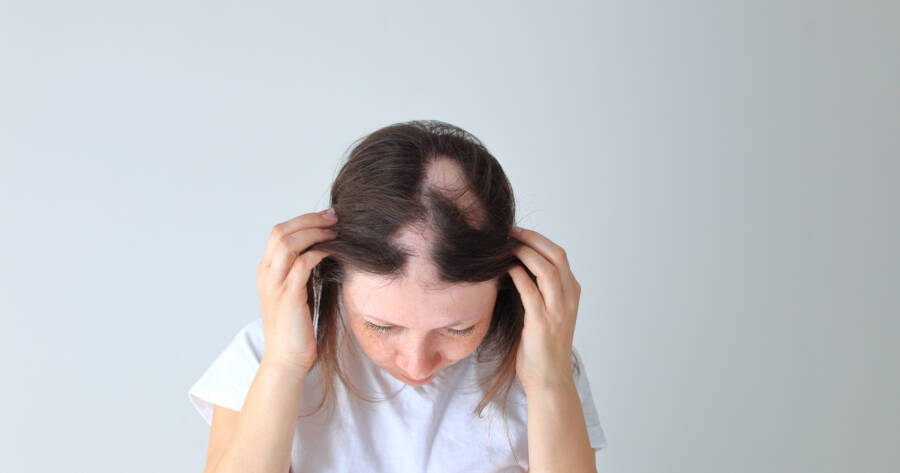Gaining a firm understanding of alopecia, from its early indicators to its remedies, can empower individuals to approach it with confidence. Start a search today to learn more about alopecia, from its warning signs to innovative treatments.
Alopecia, a term denoting hair loss, is more than just a physical phenomenon—it often carries emotional weight. Although prevalent, its intricate nuances, from subtle warning signs to the plethora of treatments available, remain elusive to many.
Recognizing the Early Signs of Alopecia
Hair loss can happen for various reasons. Alopecia, specifically, often starts with small, round, bald patches. These patches can appear suddenly, catching many by surprise. As the condition progresses, these bald patches might grow larger or multiply.
While hair loss can be alarming, it’s crucial to remember that alopecia is not uncommon. By spotting these signs early, you can better manage the condition. If you’re concerned about hair loss, it’s worth taking the time to do some online research.
Different Types of Alopecia: More Than Just Hair Loss
There are various types of alopecia and it’s essential to know which type you might be dealing with. Here are frequently diagnosed types of alopecia:
- Alopecia areata is the most common type and causes patchy hair loss.
- Alopecia totalis leads to complete scalp hair loss.
- Alopecia universalis results in loss of all body hair.
- Traction alopecia, meanwhile, is often caused by tight hairstyles.
Getting a correct diagnosis can guide treatment decisions. To understand the differences further, consider looking up each type online.
The Role of Genetics in Alopecia
For many, genetics plays a part in alopecia. If family members have experienced hair loss, you might be at a higher risk. Genes can influence how susceptible one is to the condition. It’s not solely about inheritance; environment and other factors matter too.
Unraveling your family history can provide valuable insights. If you’re curious about the genetic aspect, you might find online genetic studies and articles enlightening.
Physical and Psychological Impact of Alopecia
Losing hair can be more than just a physical change. For many, it affects self-esteem and confidence. Some may feel embarrassed, while others might avoid social situations. These feelings can be profound and shouldn’t be dismissed.
Everyone deserves to feel good about themselves, hair or no hair. While coping can be challenging, seeking support can be immensely helpful. For additional insights and tips on coping, a quick online search can provide valuable resources.
Natural Remedies: Are They Effective?
Many turn to natural remedies for alopecia. Some swear by certain oils or scalp massages. Others might try herbal supplements or special shampoos. There isn’t a one-size-fits-all solution, and results can vary. But exploring natural solutions can be a good starting point.
Before trying any remedy, it’s smart to do a bit of online homework. This way, you can better gauge which methods might work for you.
Medical Treatments: What’s Available?
Several medical treatments target alopecia. Minoxidil is an over-the-counter solution that’s often tried first. Steroid injections or creams can also be prescribed by doctors. For more severe cases, treatments like immunotherapy might be considered.
It’s crucial to work with a healthcare professional. They can guide you towards the most effective treatments for your situation. Interested in the latest medical advancements? An online search can introduce you to the newest treatment options.
Nutrition and Alopecia: Is There a Link?
Diet and nutrition can impact hair health. While alopecia isn’t solely caused by dietary deficiencies, they can exacerbate the condition. Vitamins like biotin, iron, and zinc are vital for hair health.
Maintaining a balanced diet can support overall well-being, including hair. If you suspect nutritional imbalances, consult with a nutritionist. For those keen on understanding the nutrition-hair connection, plenty of online resources delve into this topic.
The Future of Alopecia Treatments
Research is always advancing, and there’s hope. Scientists are continuously exploring new ways to treat alopecia. From stem cell therapy to novel drugs, the future looks promising.
By staying updated, you can be one of the first to know about breakthroughs. If you’re curious about where alopecia research is headed, diving into online articles and studies is a great idea.
Knowledge is Power When It Comes to Alopecia
Alopecia, while distressing, is a condition with many solutions and treatments available. By recognizing the warning signs early, seeking support, and exploring both natural and medical treatment options, individuals can take proactive steps towards managing their hair health.
Encourage those interested to delve deeper into online research to find the best path forward for their unique situation. With knowledge and understanding, you can help fight the physical and psychological effects of alopecia.
